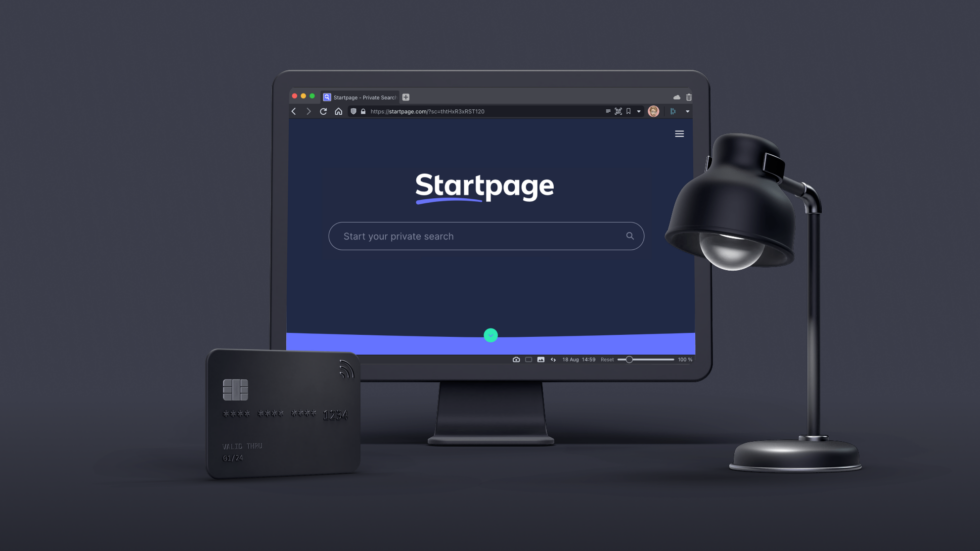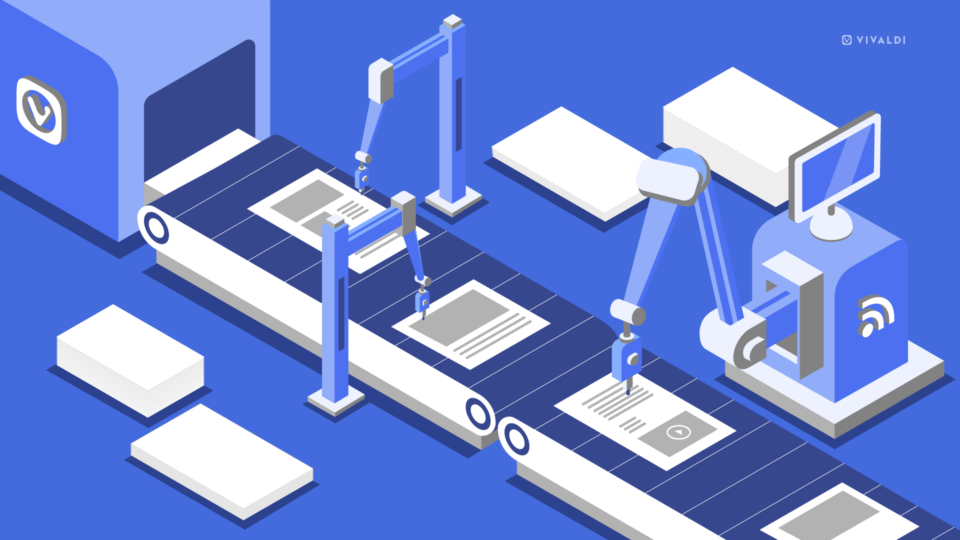
Read this article in Deutsch.
Surveillance by big tech companies is the biggest threat to our personal privacy. Privacy laws have struggled to keep up with the pace of technology, and the scale of tracking that is possible on the web. However, we are not powerless. While we wait for the legal systems of the world to catch up and protect us, we can make choices that allow us to help ourselves and remove a large part of the tracking, profiling, and surveillance we currently face.
Who’s spying on us? And why?
Surveillance comes in many forms. The word may conjure up an idea of a government watching our every move. But the reality is a lot more subtle – and a lot more pervasive.
It is private companies that do the vast majority of surveillance. They snoop into our private lives, building up a profile of who we are, what websites we look at, what products we purchase, how much time we spend talking to friends online, and what things we chat about. They learn our political leanings, our medical conditions, and the innermost private aspects of our lives. Not for some noble purpose like protecting us from danger, but for the purpose of manipulation. They learn as much as possible about you and then put that knowledge to use when trying to persuade you to buy a product, subscribe to a service, or persuade you to vote for a political agenda or candidate. They also sell these details to other companies for profit so that each of these companies now hold all that data about you, beyond your control.
The vast majority of this surveillance happens without our knowledge or consent. And even in cases where consent has been given, it is not really meaningful, informed consent.
Online, we tend to call these activities “tracking”, but this underplays what is at stake. The reality is that this is surveillance and profiling on a vast scale, to benefit corporations financially and competitively. The vast majority of this surveillance happens without our knowledge or consent. And even in cases where consent has been given, it is not really meaningful, informed consent. It is just a hurried click on “accept”, hoping to make a website or service work with minimal effort.
The result is a series of persistent attempts to convince us to do something we might not otherwise want to do, finding the unique parts of our personalities that can be used to manipulate our behaviour. You see this in ads that constantly follow you around the internet, website after website continually trying to persuade you to purchase the same product or service. Moving and looking for a new washing machine? Prepare to be chased by washing machine ads for weeks, even after you have purchased one.
This huge amount of data about us lies not in the hands of Big Government, but in the hands of Big Tech. And, as companies sell your data to each other, these profiles get linked to each other, creating a picture of you that is more and more complete.
It was not always this way. In fact, this surveillance is a very recent thing. Sure, in the past, you could sign up for your supermarket’s loyalty card, and they could see what you bought there. It’s a question of scale. Online advertising is controlled by just a handful of corporations, and they can see what you do on any website that carries their ads. This means that these big ad companies can build up a picture of virtually all websites you visit. And since the biggest of these players controls ads on the vast majority of websites, there are fewer and fewer corners of the web that you can safely consider private.
But there are still steps you can take to protect privacy online.
Step 1: Choose a privacy-friendly browser
Your choice of browser matters. Some popular browsers offer tracker-blocking features, designed to identify ads and tracking technologies used by these tracking companies and to block the techniques they use. The methods used to provide this functionality vary from browser to browser. The Vivaldi browser is one that comes with an ad and tracker blocker built in. You don’t need to install an extension, just enable the protection in the privacy settings. By choosing a browser with a tracker blocker, you gain an ally fighting in your corner, protecting you from one of the biggest sources of surveillance. With this solution, you can block invasive trackers while allowing websites to use non-tracking ads as necessary to fund their existence.
Vivaldi also allows you to block the majority of tracking cookie-consent dialogs, with the Vivaldi Cookie Crumbler. Websites that serve customers in Europe and some other nations are required to ask for consent before being allowed to use trackers. Most do this with an annoying dialog that pesters you for consent. The common reaction when encountering all these dialogs is to give consent without checking what you are actually consenting to. Perhaps because the website makes it harder to reject than to accept or even makes it seem like the website would not work without tracking, though it actually would work just fine. Or perhaps because you are in a hurry to find information, and it’s your 20th dialog of the afternoon. The Vivaldi Cookie Crumbler prevents the dialog from asking for permission in the first place. And since lack of consent is not consent, the websites have to keep their cookies to themselves.
This is only part of the picture though. You could use a tracker-blocking extension in virtually any browser. However, this doesn’t help you if the browser itself is the one doing the tracking and profiling. The most popular browser happens to also be owned by the same company that operates the majority of the surveillance-based ads. This is not a coincidence.
So this popular browser can spy on your every move. Collecting statistics. Collecting records of the sites you visit, what the pages say, and what you click on. It is like having spyware installed on your computer, except that it is the browser itself doing the spying. Blocking trackers is almost pointless if you are using a browser that collects far more details than any tracking ad ever could.
There are several browsers that claim to be focused on privacy. However, you should read their policies and check what they really do. You might be surprised how many of them include behavioural tracking – that is, tracking what you do on the web.
Some may try to elevate their tracking as vital inspiration to drive development decisions, but this is a slippery slope that can easily lead to privacy invasions in the future – especially if they boldly position this tracking as listening to you instead of spying on you.
Still others are actively developing methods to perform data collection and profiling in the browser, and then providing this information either to their own or other ad providers. And to add insult to injury, some within this bunch make misleading claims of being privacy friendly. For example, FLoC is a recent proposal that was championed by – you guessed it – that big ad company mentioned earlier. It is designed to profile users and send the resulting profile information to ad companies that ask for it. So, yes, it can bypass the trackers, and it also creates a profile of its own. And it is impervious to current blocker technology. Despite the pitch that having FLoC built into your browser is beneficial for your privacy, it is really surveillance spyware.
You can choose to protect your privacy, with a good browser. The Vivaldi browser not only has openly rejected FLoC, it does not have any behavioural tracking built in.
Your choice of browser really matters.
You can choose to protect your privacy, with a good browser. The Vivaldi browser not only has openly rejected FLoC, it does not have any behavioural tracking built in. It also does not include any built-in profiling ad service. And, yes, I might be partial, since I work for this company, as we share common ethics and values. I choose to work for Vivaldi, because they stand up for what is right. Our privacy policy is very clear: Vivaldi does not track you.
Step 2: Choose a privacy-friendly search engine.
But browsers are not the end of the story. When you go online, chances are that you use a search engine to find what you are looking for. Search engines get to see everything you search for, every link you click. It does not need to have any trackers, if the search engine is the tracker itself.
The world’s most popular search engine is owned by the same company that owns most of the world’s online ad systems, owns the most popular browser, and developed FLoC. So, your choice of search engine matters too!
A search engine promising tailored search results might be tempting. You may think it could be a true benefit. But this personalization “benefit” involves a trade off that results in a loss of your privacy. Because to tailor search results for you, it must build up a profile of you – to work out the most likely answer you want.
You do not really get a say in how long your profile records are kept or what other purposes they are used for. You might be allowed to opt out of personalised ads on the page, but that doesn’t stop the profiling; it just means that the ads you see are not using the surveillance profile that has been built – it doesn’t eliminate your profile. You can sign up for an account – giving up even more of your privacy – to control a few aspects of what gets stored, but then you have to remain logged in, confirming that you really are in fact the specific person with a specific name or phone number, and not just an anonymous profile. So it is a case of giving up one aspect of privacy, while hoping to gain another.
You might think that the way things stand, there is no way around this tradeoff. But, the truth is that, in most cases, a non-tailored search result would be just as useful to you, without requiring tracking – and the violation of your privacy – in the first place. You have the option to avoid this surveillance by choosing a privacy-friendly search engine, one that doesn’t track you or keep records of your searches. These search engines embrace the idea that what’s private should stay private. Whatever you search for should be your business, not another strand in a profile.
Startpage is a fine example of a privacy-friendly search engine. Along with not tracking you or collecting search history, it lets you view search results anonymously – not even the linked website will see that you have loaded it.
Since most search engines are free to use, there are of course going to be claims that search engines need to use tracking ads to support the business. This is simply not true.
As you can see, choosing a search engine that respects your privacy is another very important aspect of preventing surveillance and tracking. Choose one that you can visit and use without having to accept an agreement first. One that does not try to encourage you to sign up for an account. One whose privacy policy clearly states that they do not collect data.
Since most search engines are free to use, there are of course going to be claims that search engines need to use tracking ads to support the business. This is simply not true. Privacy-friendly search engines like Startpage manage to sustain themselves with ads that do not use trackers.
The choice – and power – is in your hands.
The bottom line is that, in spite of what tracking companies might want you to believe, the privacy tradeoff isn’t inevitable in order for you to browse and search the web. You do have a say in the matter, a choice.
You can choose to allow surveillance, tracking and data collection on a vast scale, allowing big tech companies to profile and manipulate you. Or you can choose to use a browser like Vivaldi that refuses to profile or track you, a browser that protects you from online trackers. You can choose to use a search engine like Startpage that protects your privacy, instead of profiling you or collecting your searches.
Choice is good, and, with better alternatives such as the Vivaldi browser and Startpage search engine, you can choose to protect your privacy.

